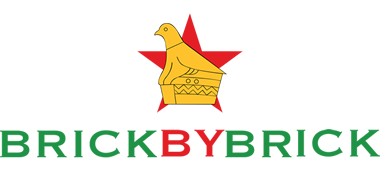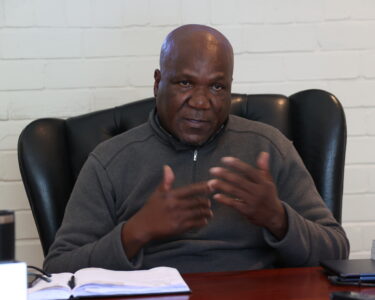When the Second Republic came into office in 2017, it identified devolution as one of the top priorities in its efforts to achieve Vision 2030. Some sceptics thought the government was going to continue paying lip service to this noble concept. To an extent, the doubting Thomases had a point because, since 2013, not much had been done to implement it, despite it being a constitutional requirement. To everyone’s surprise, the Second Republic hit the ground running implementing devolution and evidence to date suggests that there is definitely no going back.
In this Q&A with our Editor-in-Chief Munyaradzi Huni (MH), the Minister of Local Government and Public Works, July Moyo (JM), whose ministry is charged with overseeing its implementation, reveals that in his first Cabinet meeting since taking over the levers of power, President Mnangagwa boldly declared: “We must implement devolution.”
Needless to say, the devolution agenda has gathered momentum over the past 5 years. But, according to Minister Moyo, while devolution is quickly transforming the country, it looks like not everyone is singing from the same hymn book. “I think devolution is not understood by central government more than at any other level. That is my accusation,” he said without mincing his words.
Sit back and enjoy this hard-hitting interview . . .
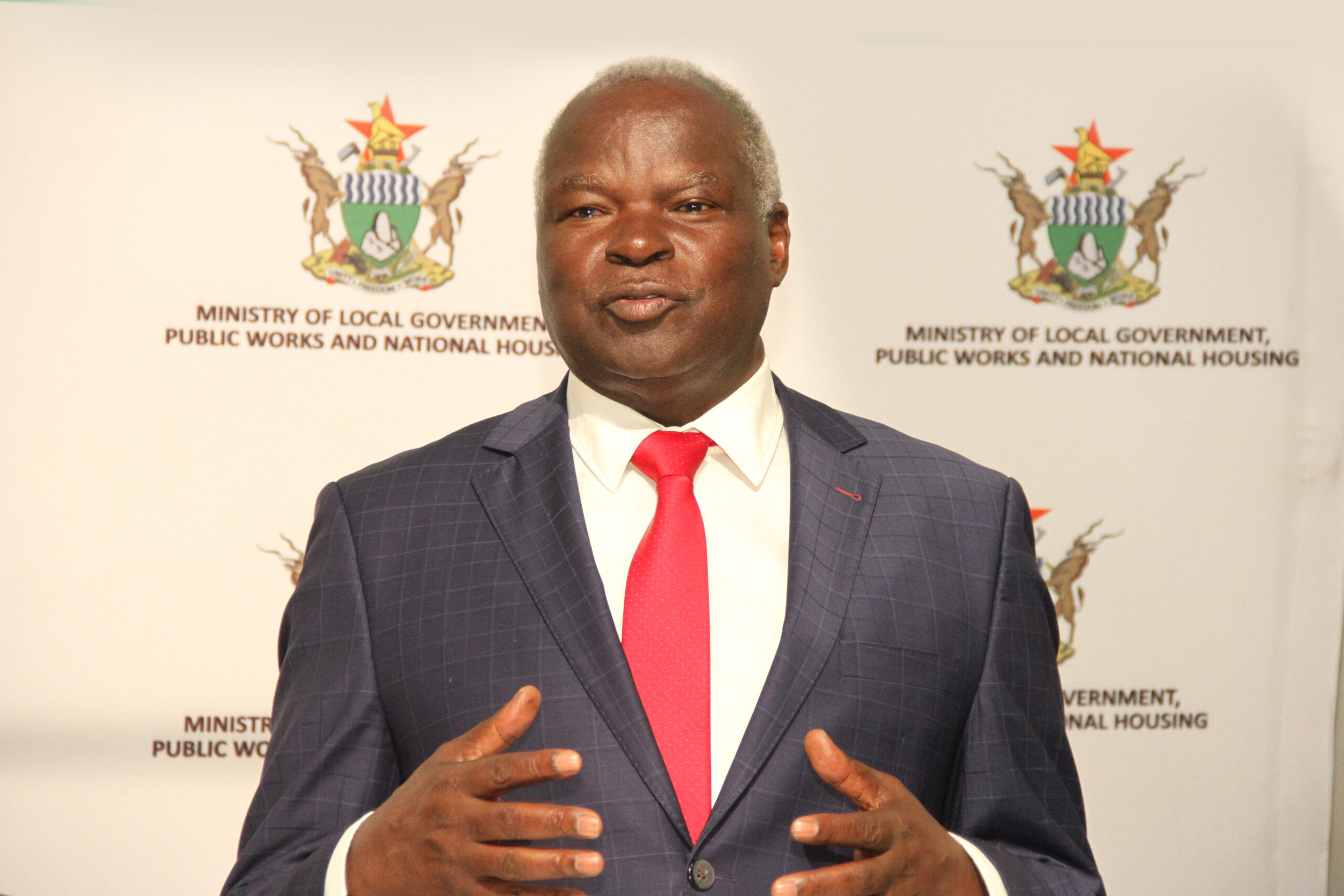
MH: Minister, can you define in simple language what exactly is devolution? We want even the ordinary person to understand what devolution is all about and the philosophy behind it.
JM: A country is defined either as a unitary or federal state. Zimbabwe is a unitary state. Having said that, you want to decentralise operations and activities so that you are closest to the people you serve because the people are spread all over the country. You then choose to decentralise.
There are 2 ways to decentralise. The first one is some critical government operations are decentralised to the provinces and districts, but they remain government activities. For example, the registration of births and deaths will always remain a central government activity in a unitary state like ours. You decentralise it so that officers of government are operating at provincial and district levels. In some cases, you can even operate at community level and that is what we are now trying to do with birth and death certificates.
The Ministry of Home Affairs is saying traditional leaders should help in keeping us informed about deaths and births [in their respective jurisdictions]. That is decentralising a government activity which remains centralised. That is what we call decentralisation through delegation and taking the people who are delegated the work closest to the people. So delegation is another form of decentralisation.
Devolution is also a form of decentralisation where a government under its Constitution, in its legislation or its subsidiary legislation, makes it constitutional and statutory to devolve. This you do by devolving powers to another institution lower than central government.
Zimbabwe has decided to implement devolution such that the government operates at 3 levels – central government level, provincial government level and local government level. There is a 4th level, which is not very well articulated – that is, at community level where the chiefs are. So it ends up being at 4 levels. However, the more pronounced ones in the Constitution are the first 3.
Devolution is different from the other forms of decentralisation in the sense that under devolution, you give legal power and you spell out the extent of that power. Secondly, you also spell out the revenue sources, which can be independent of central government although part is also dependent on central government. Thirdly, those who have been given devolved power in most cases hire their own staff. The others are hired by government, whether at village level, you are hired by the Public Service Commission [PSC]. But under devolved powers you are actually given power to hire and fire. Yes, central government has the final authority on the calibre of staff you hire and fire, but the important thing is that you are given the powers to hire and fire.
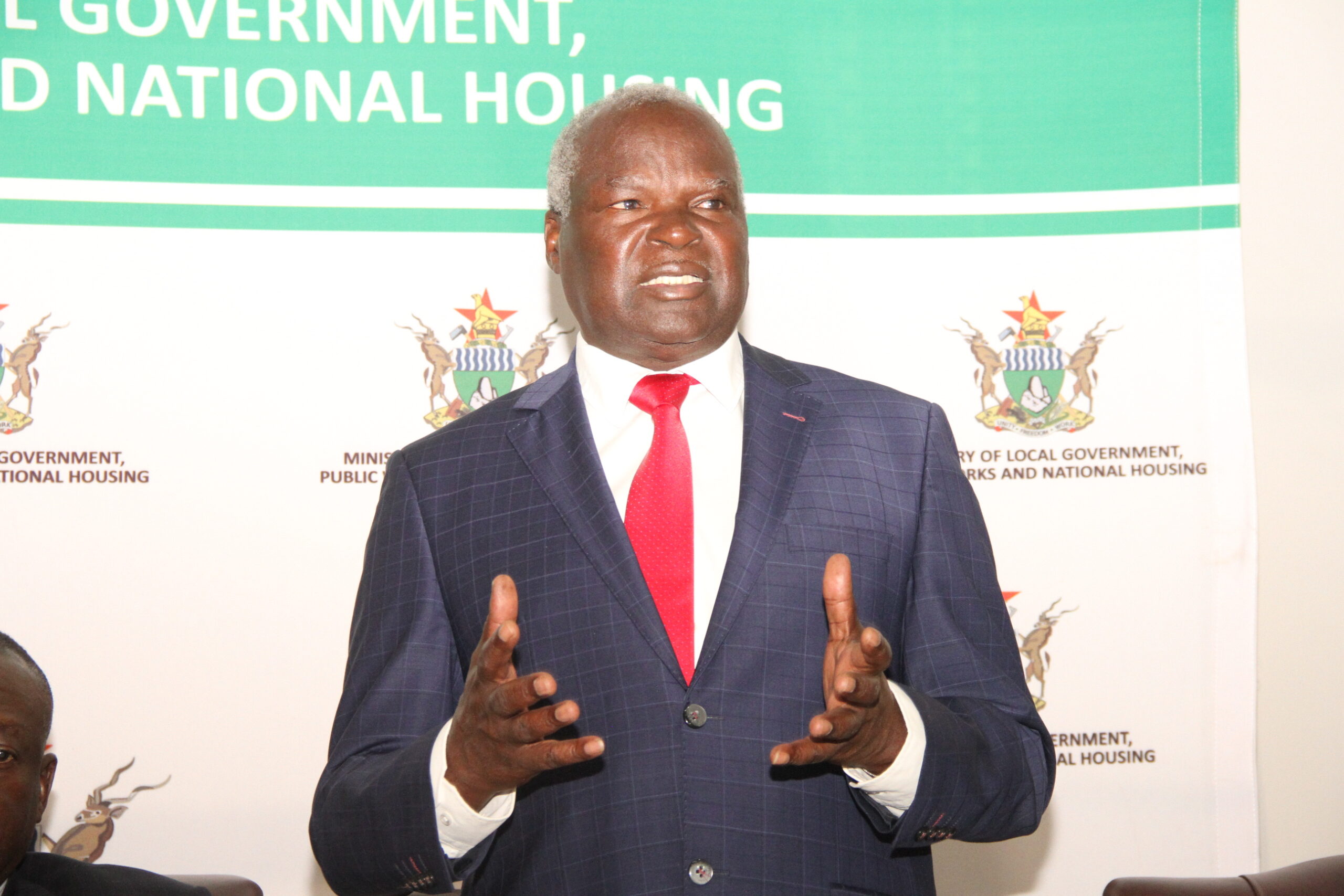
The 4th thing about a devolved system is that you are given legislative powers. You can actually come up with your own legislation, as long as it conforms to legislation that has already been passed by Parliament. So yours becomes subsidiary legislation. All our local authorities are allowed to have their own by-laws. By-laws are laws applicable to a designated council area, but they are national in scope. How are they national? When you propose a by-law, you have to state which national law you are relying on. Because of that national law, you submit your by-laws to this ministry, which forwards them to the Attorney-General who must decide if they are consistent with the national laws, and not ultra-vires the Constitution.
Once stamped, the by-laws are published nationally in the Government Gazette. You can then enforce and enforce them as council. In practice, this means the national enforcement agencies, which include the police and the judiciary, can enforce the by-laws in the respective council area just as they enforce the other laws of the country.
So under devolution, in essence, you are giving an institution, either a provincial council or local authority, those 4 main powers. The power to make laws, the power to tax, the power to hire and fire and the power to legislate.
MH: So is there a constitutional provision for devolution in Zimbabwe and if it does exist, what does it say?
JM: Yes. Chapter 14 of the Constitution gives powers to local authorities. Those powers are spelt out in detail in the Urban Councils Act, in the Rural District Councils Act and in the Provincial Councils and Administration Act. So it’s captured in the Constitution Chapter 14 which is buttressed by subsidiary legislation. Because of the powers of taxation, our Constitution also spells those powers to tax in Chapter 17, which is the financial chapter. So you find it [devolution powers] in Chapters 14 and 17 of the Constitution. Then, of course, there is Chapter 15 which deals with traditional leaders. It, too, has complementary laws that bolster the devolution agenda.
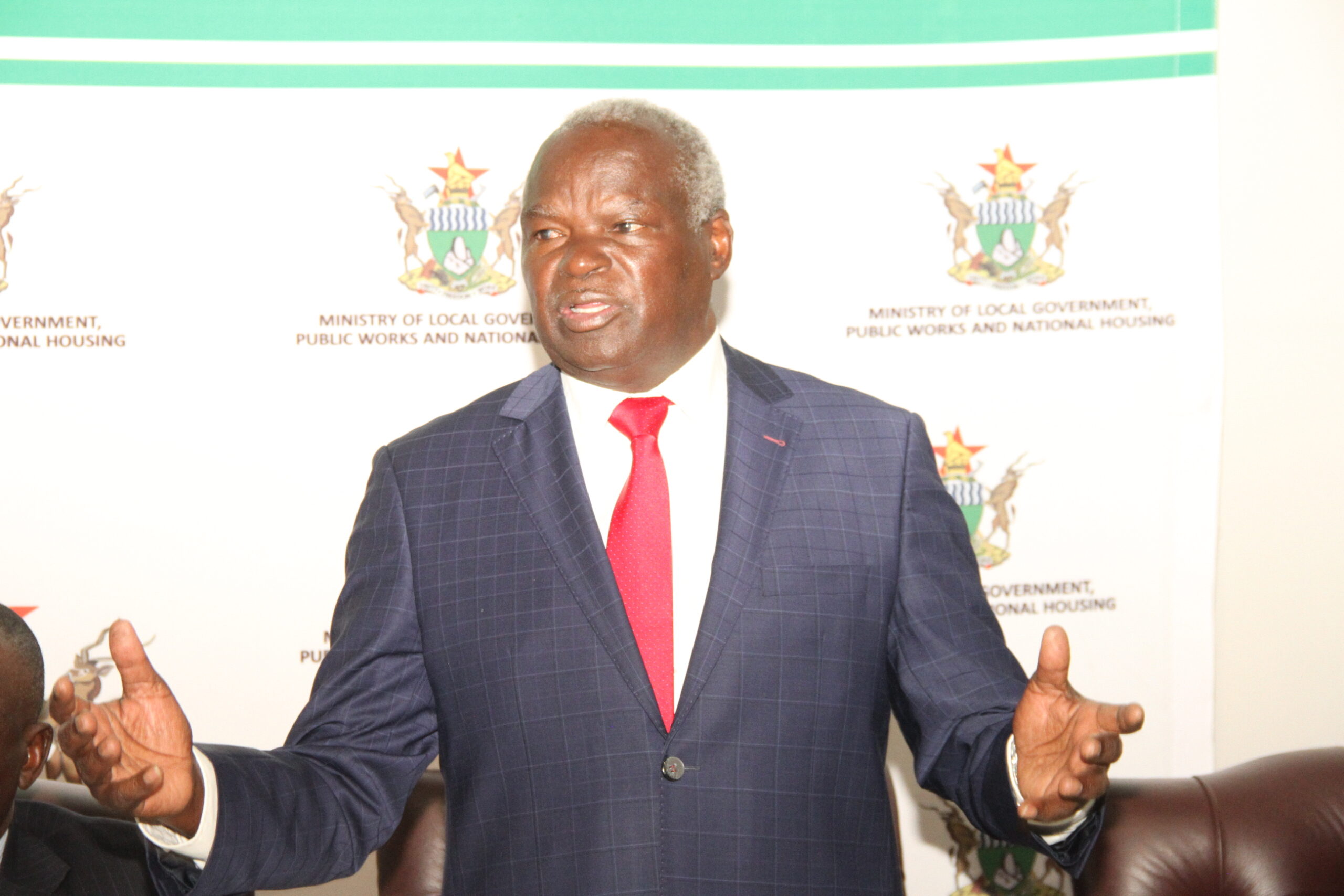
MH: Why is it important in the Zimbabwean context to devolve? What is pushing the Second Republic to focus so much on devolution?
JM: You know President Mnangagwa’s mantra – leaving no one and no place behind. No place, no village and no district shall be left behind in terms of development. You can only do all this if you give the necessary powers to that village, to that ward, to that district and to that province to articulate their own issues.
When you have given them those 4 powers, you have given them the power to do as they please. Government must follow what the people want. When the people want a borehole, they sit in their ward, they sit in their council and say we want a borehole. They may say we want a school, a clinic, etc, etc [but, it’s entirely up to them].
So the President’s mantra is what prompted him under the Second Republic to say let’s implement devolution. He is very clear. The Constitution was passed in 2013, but nothing happened on the devolution front. However, during first meeting of Cabinet in 2017, soon after he came into power, President Mnangagwa boldly said we must implement devolution. We were supposed to give money to local authorities, but because we only met sometime in December, the then-Minister of Finance, Patrick Chinamasa, said he could not start the Budget afresh.
So in 2018, we lost a year, but the writing was already on the wall that we must implement devolution to the full. That was the first thing that the President emphasised. It’s something that he had thought through. Remember, he was part of the constitution-making process. Although devolution had not been implemented since 2013, he clearly wanted it implemented.

MH: From the way you are speaking, it looks like even the mantra, nyika inovakwa nevene vayo, fits perfectly well and resonates well with devolution?
JM: It’s very clear. If you create a dependence syndrome, you would have decentralised using delegation where you are waiting for government to do things for you. When you devolve and say you have the powers to do your own things, nyika inovakwa nevene vayo, brick by brick, right down to the village. The President has his eyes on each one of those villages, of which they are 35,000.
When you think of how you run a country and you are not superficial; and you are thinking of a village, you want to know what is happening in every village. You are also saying to the people in the villages, you are empowered to build your own village. We can assist you, but you are empowered to build and develop your own village, brick by brick. We say nyika inovakwa nevene vayo because we must support the efforts of that village.
Our devolution in unique in one way. If you go to Chapter 17, we start analysing what each local authority has. What is its potential? Is this potential being exploited to the maximum? If it’s not being exploited to the full, what can we do to help them exploit it to the maximum? The answer is: We start giving them devolution funds. The devolution funds are a residual of what each local authority ought to be doing. However, there are disparities. The word disparity is actually there in the Constitution. Because of those disparities, how can we lift up those who remain behind? We lift them by giving them devolution funds.
Devolution funds are not given by saying 100 divided by 92 local authorities. You use criteria which are in favour of lifting those who are lagging behind. You use your poverty depth, you use your infrastructure deficit and you use your population data. We give more weight to poverty depth, then infrastructure deficit and, lastly, to population data. We ask what are the areas that we must intervene in the immediate, medium term and long term?
As we devolve, right now, we say, let’s use 6 interventions that cover poverty, infrastructure and population. No. 1 is educational facilities. We believe so much in education because if you want to lift everyone, without leaving anyone behind, you must do something about education. The Ministry of Education has criteria on the distance, especially in the rural areas, under which one can travel to a school. Are we meeting that? The Ministry of Education also has a teacher-pupil ratio which is based on infrastructure. Do we have infrastructure such that we can accommodate the required ratio? If you are in the urban areas, you know some classrooms are taking 60 pupils or there is hot-seating. This means there is a deficit in classroom facilities. So schools are No. 1.
No. 2 are health facilities. How many kilometres does a mother have to travel to take their child for antenatal care? The Ministry of Health has criteria on health facilities. We say to the local authorities with the devolution funds, use these funds to eliminate that long distance between clinics so that everyone has access to health. This is key to not leaving anyone behind.
No. 3 is water. Do people have access to clean water? Now because we have decentralised, we know the villages. The President has said every village must have a borehole, but that borehole should not just be a borehole for the sake of it. It should be a borehole from which you can irrigate your nutrition gardens, water your cattle and so on. The borehole is not the project. The project is what you are going to do with the water. The water is not just for drinking. There is need to create other economic activities.
No. 4 is your road network. Your road network is key for production systems and for accessibility and mobility of the people. We set aside money which should go towards road maintenance.
No. 5 is electricity. We have determined that we can actually electrify this country. For statistical purposes, in 1994, we went on a trip to Ghana. Kwame Nkrumah [the country’s first black president] believed in electrifying Ghana. Some of us who studied Lenin know that way back in 1924, Lenin said for the Soviet Union to prosper, it must electrify. Nkrumah took that vision from Lenin and electrified Ghana. Ghana, in my studies, was the first country that enacted an Act of Parliament on the electrification of Ghana. He became the chairman of the Electricity Company of Ghana — the Volta Company of Ghana.
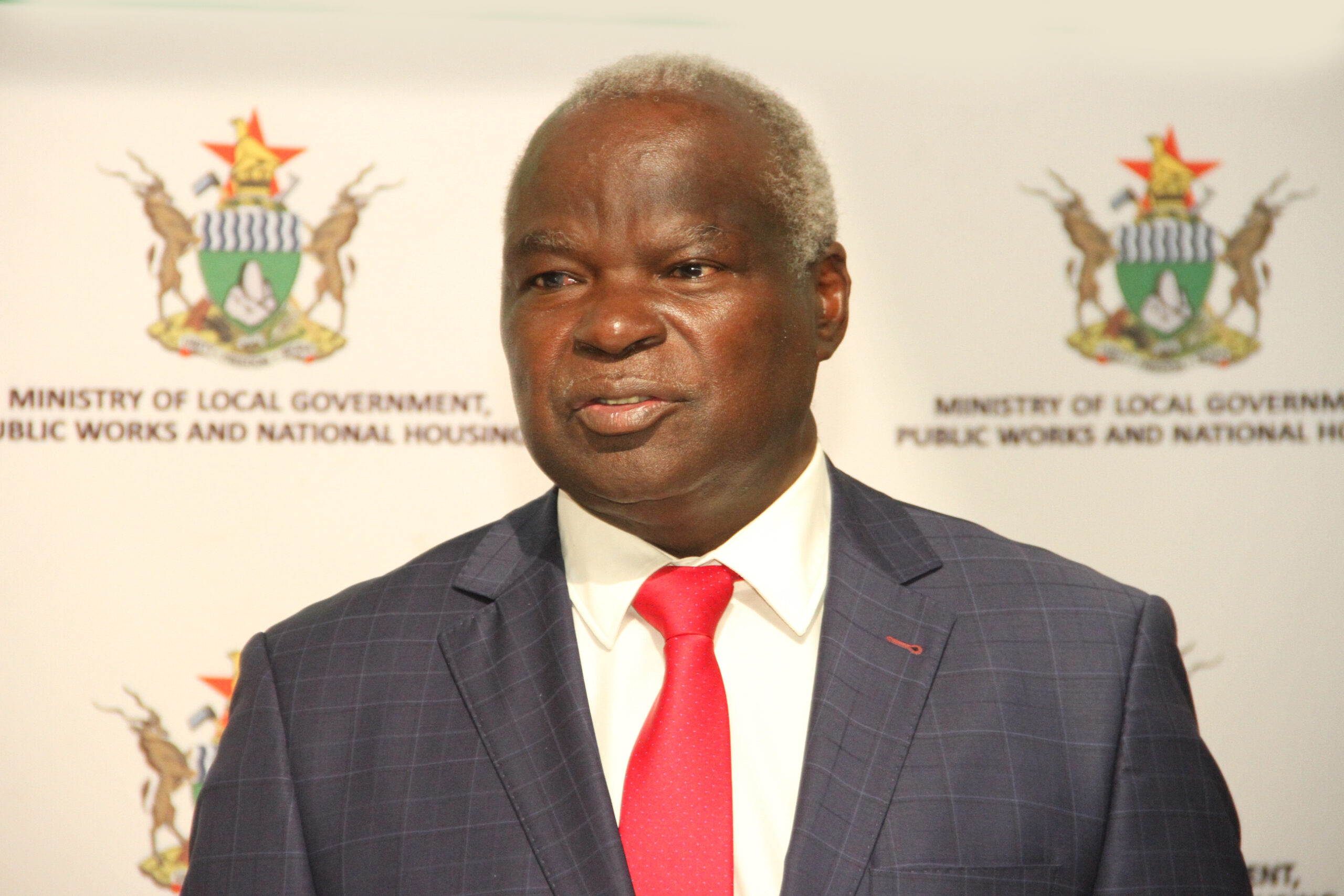
When we looked at Ghana in 1994, Ghana was 98% rural-electrified. At that time, we were around 12% and we said no, we must do better than this. That is why we formed the Rural Electrification Agency (REA).
Now we are saying devolution must assist in rural electrification. It will mean a lot for Zimbabwe. For example, think of the teachers who are being deployed out there in the rural areas, they will be happy to work in the rural areas because everything will now be found there. The same applies to the other professionals [doctors, nurses, etc]. With electrification, even ICT will be found in the rural areas. So electricity is key to the uplifting our people in the rural areas.
No. 6 is amenities. Just as an example, we held our recent independence celebrations in Mt Darwin. That was a devolution decision because, traditionally, those celebrations were held mostly in Harare and sometimes in Bulawayo. When we held the celebrations in Mt Darwin, we left the people of Mt Darwin with a state-of-the-art sports stadium. Such social amenities are important.
So through devolution we are not only giving power to the people. The power must be supported by monies that come, first, from the central government; and, secondly, monies that councils can generate on their own. Through devolution, we have defined parameters on what the central government is going to do. For example, the central government is going to be in exclusive charge of income tax, and customs and excise duty. Local government cannot touch these 2.
But, according to the Constitution, local government is responsible for property tax and the central government cannot touch that. Property tax applies to physical assets such as land. All land taxation is the responsibility of urban and rural authorities. Property tax also includes tax on infrastructure, i.e. buildings and so on. The local authority is empowered to evaluate infrastructure and give it a value. It then charges a tax based on its valuation.
MH: Thank you for outlining the 6 interventions, but Minister who exactly has the power to say devolution funds sent, for example, to Runde Rural District Council should be used this way or this project should be prioritised?
JM: It’s council that makes those decisions. The council has mechanisms to distribute the funds. Central government gives the council a lump sum which then decides, using its own priority list, which projects should be funded first. However, the councils have to inform central government how they are going to allocate the funds to each and every project they have chosen. Council knows which wards and/or areas need what. There are ward development committees and village development committees that determine which projects should be prioritised. It now comes down to people’s power.
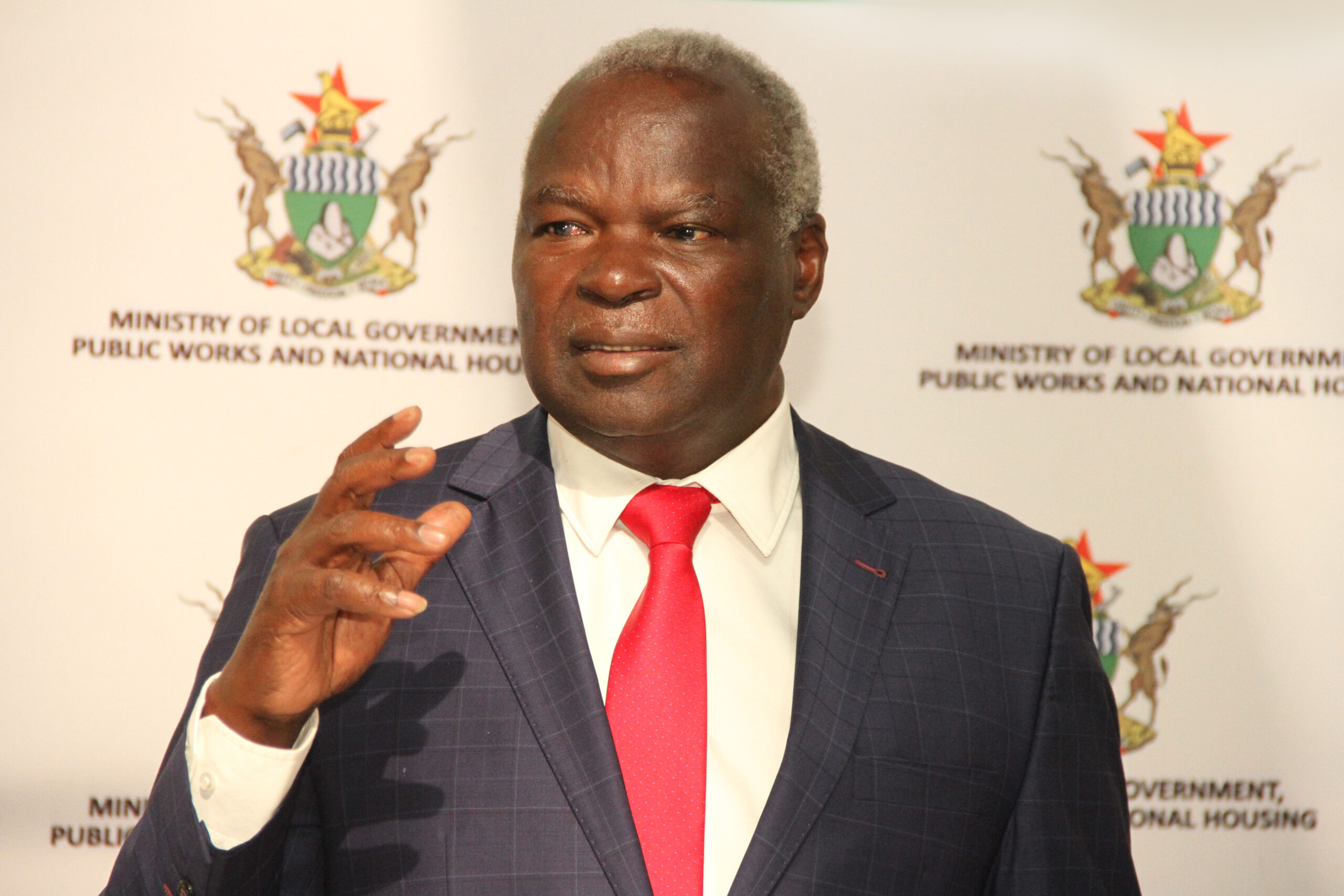
MH: From your assessment, would you say the Second Republic is making significant progress in implementing the devolution agenda?
JM: We have made significant progress and we have the statistics to prove it. From 2019 onwards, the Minister of Finance has been going to Parliament to announce devolution funds that he has allocated for districts like Binga, for example. For the first time in this country, the Minister of Finance is not only announcing devolution funds he has allocated to a ministry. He is now announcing what he has allocated to a province and what he has allocated to each of the country’s local authorities. This never used to happen [under the First Republic].
The significance of this new development is that we now have a comprehensive Budget, where no one and no place is left behind. Each local authority knows what it is going to get. Once they have been allocated funds in October by the Minister of Finance, the local authorities start budgeting to see how they can utilise those funds. The National Budget now has meaning for the local authorities.
MH: As we were going around the provinces, one of the major complaints was that devolution funds don’t come in time. The authorities are complaining that they are told that they have been allocated a certain amount, but the money only comes in dribs and drabs. What exactly is the problem and what are you going to do to solve it?
JM: According to the Constitution, it’s mandatory that at least 5% of the Budget goes to local authorities and provinces as devolution funds. The Ministry of Finance has been very thorough in complying with this requirement. The wording in the Constitution is very clear. It says: ‘Not less than 5% of the national revenue raised in any financial year must be allocated to the provinces and local authorities as their share in that year.’ Please note the use of the word raised.
At the budget consultation stage, the Minister [of Finance] says we are going to raise this much and, therefore, budgets 5% [for the purposes of funding devolution projects]. There is no quarrel with that. Then they go and raise, sometimes, 110%, but they give us less than 5%. Or if they raise 80% of the revenue that they have budgeted for, it’s okay for them to give us less than what they have budgeted for us because the catchword is raised. It is this mismatch that is causing problems for local authorities.
The second issue is really not such a big issue. Most local authorities have been operating on accrual budgeting ever since they started. Central government is trying to do accrual budgeting. Before the imposition of sanctions, central government would budget and it knew that it’s money was coming every month. But if ever there was a shortfall, the central government would borrow. Unfortunately, this government is not borrowing. It’s working strictly on cash budgeting. So if you delay paying this month because you are under pressure and promise to pay later, we have no quarrel with that. My worry is that sometimes the money eventually doesn’t come.
MH: So what are you going to do about that because the delays are badly affecting projects on the ground?
JM: I know the President will put his foot down on this one. He has to and I know he will make sure there is speedy disbursements of the funds. The Minister [of Finance and Economic Development], Mthuli Ncube, understands this, but it looks like some of his officials don’t. At one point they said councils don’t have the absorptive capacity. That was a lie. All councils have the absorptive capacity. The President is leading the devolution agenda and, I can assure you, he will deal with this.
I understand the frustrations from the local authorities because, due to inflation, sometimes the money will have lost its value by the time it reaches them. This is the environment we are operating in and there is nothing much we can do about it. We just have to adjust and adapt as we go.
MH: Devolution is not only about the distribution of funds. What are the other measures you have put in place to ensure that there are operational efficiencies in these provincial and local authorities? Do these provinces and local authorities have the necessary tools to ensure that the devolution agenda filters right down to the grassroots?
JM: I just mentioned 4 things. The legal power to make their own laws. These laws enhance operational efficiencies. The other issue is that they hire and fire their own staff. Our sole responsibility is to ensure that they hire the right people. That is why in terms of hiring, the top echelons are approved either by the local government board or in the case of rural district councils, they are approved here at the ministry. At the local government board, there are experts from the public service and [human resource] people who have been in the system before, people with experience. There is strict quality control over the calibre of people they hire.
The other issue is that officers from my ministry have oversight. The ministry’s major mandate is to create systems and to train those running the systems. The financial oversight is with our department of financial advice. The administration department in the ministry also analyses minutes [of meetings] to keep an eye on what is going on at provincial and local authority levels.
Whatever happens at provincial or local authority level should be in the Constitution or the in the statutes. Anything outside that is ultra-vires. It’s mandatory that every month they get minutes from the provincial and local authorities. The department can also go on the ground and to conduct regular investigations.
However, as a ministry, we can’t do everything. For example, we can’t check what is happening in the health sector. The Ministry of Health at provincial level should constantly check on health issues. Do you know Harare was becoming chaotic because they never had a provincial medical officer?
Thanks to devolution, we have had to rationalise central government also in order to service the local authorities. We did not have a provincial physical planner for Harare. So when you look at some of the chaos in Harare, it’s because a planner from the city, Chitungwiza or Epworth was now coming here to Harare, rather than having someone here responsible for physical planning. We had a physical planner for a small province like Mashonaland Central, but none for Harare Province.
So, on instructions from the President, we have taken a decision that every ministry should decentralise to the provinces. Having said this, I want to tell you that quite a number of government ministries are not playing their role.
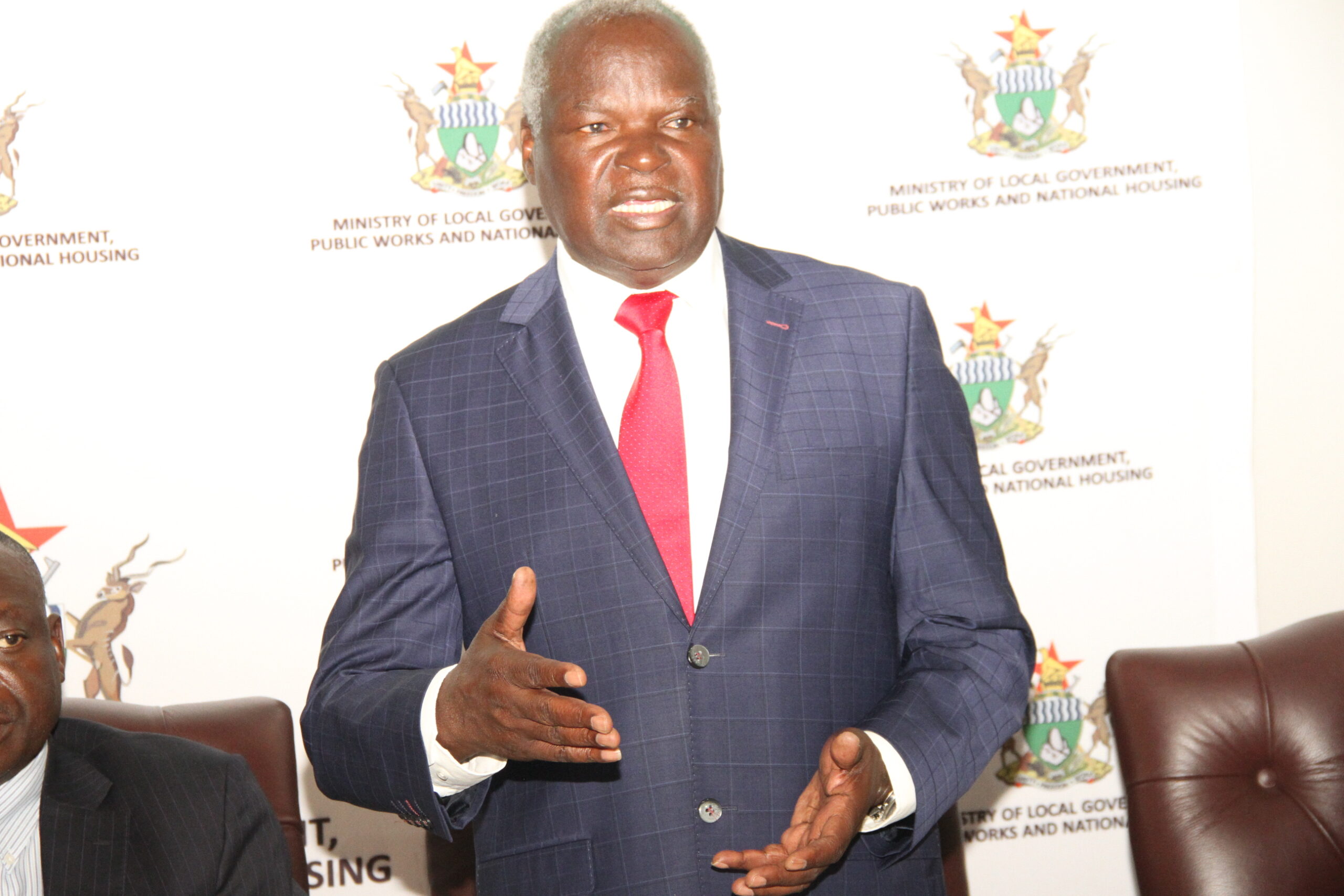
MH: I am asking about operational efficiency at provincial and local authority level because when we went around the provinces, we discovered that most of the officials who are supposed to push the devolution agenda do not have cars, for example. How do you expect them to carry out their duties?
JM: The Public Service Commission has done some things that I am still to understand. When I see what they have done, they have actually undermined the system. For an example, right now my ministry does not have a presence at provincial level. When they restructured and transferred some officials from my ministry to the OPC [Office of the President and Cabinet], it dislocated. I am not saying they shouldn’t have done it.
All ministries should have staff at provincial level. Our staff at provincial level will supervise the district level staff just as staff from the Ministry of Education do. They are there to supervise what is happening on the ground. When our officers were redeployed to the OPC, we were left hanging.
MH: The other thing I found quite odd is that when I went, let’s say, to the provincial offices, most of the directors who were recently appointed there did not have cars, but when you go on the ground you notice that the district development coordinators (DDCs) have vehicles. Why is it like that?
JM: It’s because the DDCs fall under our ministry. These officials at provincial level who used to be in our ministry don’t have sufficient tools to carry their duties. It’s like they went away. We are actually saying some of them should come back. When they were in my ministry, they were very active. We still need them. We will look into this issue.
MH: When the funds are disbursed to provinces and local authorities, how do you ensure accountability in their use?
JM: There are quite a number of measures. The first thing is that we ring-fenced the funds in terms of accounting on the ground and in terms of the location of the funds. The provincial and local authorities have dedicated bank accounts for the devolution funds. Whenever a disbursement is made, they are supposed to acquit those funds. We will then check to see if the funds have been used according to the budget.
MH: Have there been issues where devolution funds have been abused?
JM: Of course, but not to a serious extent. Some of the officials, after realising that they have done something wrong, seek for condonation from me. There has been some abuse. When we give funds to provinces and local authorities, we say 10% of the money can be used for overheads. This is where you can buy an administrative car, build your offices and so on. This is usually the money that is targeted for abuse.
There is no abuse in the sense that devolution funds have not been accounted for. It’s about application to a wrong priority. Abuses might occur here and there. For example, the local authorities might want to buy a grader; and they go and buy it from someone of dubious credentials who is out to make a quick buck. They may end up buying the grader which they don’t need and you know what that means. Abuses of that nature are common, but like I said, they are not rampant.
We have also been grappling with PRAZ [the Procurement Regulatory Authority of Zimbabwe]. Can you imagine, if you are a local authority in Binga and you are subjected to a PRAZ process identical to the one applicable to the ministry, then something is wrong. The long distance alone will make it almost impossible for you to comply 100%. I must confess, there are areas of procurement which we need to interrogate.
I know monies that come from government are sensitive if they are abused. I would say right now, for some local authorities, devolution funds do not amount to 30% or even 20% of their total budgets. The balance of the funds they must raise by themselves. The Auditor-General’s Office also ensures accountability.
MH: Minister, you have also been accused of abusing devolution funds. How far true are these allegations?
JM: Well, sometimes we must abuse the funds (laughs). The most popular one is the waste management deal at Pomona. The Harare City Council signed an agreement with Geogenix BV, an investor from Germany, to build a waste-to-energy plant at Pomona. They proceeded to do due diligence together with our own people because it’s a big project. They agreed to go for it. We analysed the deal and engaged ZIDA [the Zimbabwe Investment and Development Agency]. ZIDA brought it to me and I signed it. The Minister of Finance then presented the project to Cabinet, after which the deal was given the go-ahead. However, Cabinet felt because this is a big project, the negotiations must be done under the Deputy Chief Secretary in the OPC responsible for infrastructure being superintended by the Attorney-General. They negotiated and they agreed. They brought back to Cabinet the terms of the agreement.
The City of Harare is supposed to pay for this deal and government has guaranteed the deal, through a sovereign guarantee. Mayors change at the Harare City Council and the new mayor says he doesn’t want the deal. He instructs council to cancel the deal. We said, ‘Ahh, there are about 3 more European countries involved in this deal – Italy, the Netherlands and Albania — and we have signed a guarantee for it. The project has started and someone can’t just come in and say let’s cancel it. This meant that the government, as the guarantor, was going to pay for this project.
We said, no, no, no. We are not cancelling it. Devolution funds are allocated to those 6 areas I alluded to earlier on. The council had already budgeted for waste water and sewerage. We said the project will go ahead, but instead of the Minister of Finance forking out the money, we will take money from Harare City Council’s devolution funds. The money they had earmarked for waste water and sewerage.
The Harare City Council was refusing to pay for that which it ought to pay. We took the devolution funds and that is what some people call abuse. I never touched a cent. That is why I never respond to those allegations. We have more serious issues to deal with.
MH: Do you think devolution is understood at all levels – central government, provincial and local authorities? Do you think the mindset of the officials at these levels has changed to understand and accept devolution?
JM: We have tried our best to make people understand devolution and, of course, we must continue. I think devolution is not understood by central government more than at any other level. That is my accusation. Honestly speaking, when I sit, for example, with security — State Security, CIO [Central Intelligence Organisation] — they also have to devolve. The law says the Government Protective Security Act is administered by the CIO. There is no key point in this country which is not under this Act.
What is a key point? Just as an example, Morton Jaffray Waterworks is a key point because if you went there and did something to the water, you are actually undermining the defence and security of the country. So it’s a key point, but over the years that department is not taking responsibility. If something happens at Morton Jaffray, they should be the first to know. They should not accuse anyone. They are the ones who should be in charge. They should decentralise. The guards who protect these key points should get instructions from the CIO.
Let’s go to the small and medium-scale enterprises (SMEs). We have been grappling [with this challenge]. They want space to work from, but it’s spatial planning. If space for SMEs is demand driven, who must drive it? Is it the local authority alone? Or is it the ministry responsible for the SMEs? How does the SMEs ministry drive it? They should be looking at formulating a policy which says if you are constructing a new suburb, there should be space for SMEs. If the authorities in the SMEs ministry want workspaces, they should come up with a piece of legislation that says to every local authority, you cannot build this area without allocating space for SMEs. It’s not my ministry that should do that. It’s them.
The same applies to industry. Industry is not sited by us. We don’t know how to site industry, but we can plan for it as long as they give us the guidelines on how in the new ICT era, industry should be sited. Local authorities then incorporate this in their plans.
I administer the Foreign Embassies Act, but I must the informed by the Minister of Foreign Affairs on how things should be done. For example, we are building a new [capital] city [in Mt Hampden], if the new trend is that embassies should have their own district, the minister should tell us so that we plan with that in mind.
MH: If at central government they don’t understand devolution to that extent, how then do you expect those at provincial and local authority levels to fully understand it?
JM: There is need to educate staffers at all levels. Every ministry has a responsibility to make devolution work. This misunderstanding which exists at central government level, here in Harare, could also be replicated at provincial level and at district level.
At provincial and district levels we have been conducting seminars [in a bid to raise awareness]. When we started implementing devolution, I went to each and every province to explain what we wanted to do. We brought in universities and asked them to start teaching devolution. We went all over, but that is not enough. It’s a process.
One of the things I have been saying to the Public Service Commission is that this is a system. We need an in-house training department which is very powerful. This department should come up with programmes to make sure officials in government understand what devolution is all about.
We also need articles in the media analysing, for example, the roles of the different ministries in the devolution agenda. The different ministries should fit into the devolution agenda. If we want our devolution to deepen, every ministry should ask itself what it can do to strengthen devolution. We believe devolution is the best way to serve the people.
As for service delivery at the local level, as the Nigerians would put it, we don’t want to earmark it, we want to eye-mark it. We want to see it. Every ministry should ask itself: “What can be seen of it on the ground as regards devolution?”
The Ministry of Agriculture has taken the lead in devolution. They are talking of a borehole for each village, they brought Pfumvudza/Intwasa to the villages and they are bringing nutrition gardens to the villages. That’s devolution at its best.
We must continue to educate our decentralised operatives, i.e. the officials on the ground. They are quite capable of undermining devolution if we don’t educate them. We have taken power from them. For example, they are used to taking food to the people, but through devolution we are saying, the people no longer want you to bring them food, they now want you to facilitate them to produce food on their own.

